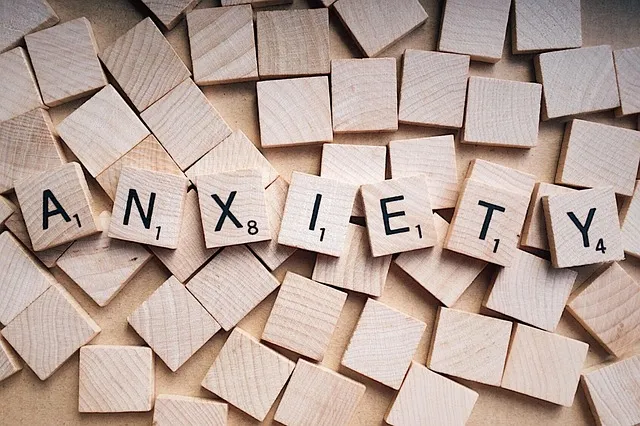Group facilitation, as showcased by Centennial Kaiser Permanente behavioral health services reviews, is a powerful tool in community healthcare. Skilled facilitators create supportive environments where individuals learn from and support one another through open dialogue and emotional regulation techniques. This collaborative method enhances resilience and coping strategies, especially for vulnerable populations, by navigating emotional healing processes and encouraging self-awareness. A safe, non-judgmental atmosphere fostered through active listening and empathetic responses is key to positive outcomes, reducing stress, and promoting personal growth. Measuring success through client satisfaction ratings and testimonials, these sessions aim to normalize mental wellness conversations, achieving impacts beyond individual growth.
“Explore effective group facilitation techniques in mental wellness care, as highlighted in Centennial Kaiser Permanente behavioral health services reviews. This article delves into key aspects of group therapy, including the facilitator’s role, creating safe spaces, engaging participants, and measuring success. By understanding these strategies, professionals can enhance therapeutic outcomes, fostering supportive environments that promote healing and growth.”
- Understanding Group Facilitation in Mental Health Care
- The Role of a Facilitator: Skills and Qualities Required
- Creating a Safe and Supportive Group Environment
- Engaging Participants: Strategies for Effective Interaction
- Measuring Success: Evaluating the Impact of Group Sessions
Understanding Group Facilitation in Mental Health Care

Group facilitation plays a pivotal role in enhancing mental wellness within community-based healthcare settings, such as those offered by Centennial Kaiser Permanente behavioral health services reviews. This collaborative approach goes beyond individual therapy, fostering an environment where participants support and learn from each other. Skilled facilitators guide conversations, ensuring every voice is heard and respected, thereby promoting cultural sensitivity in mental healthcare practice.
Effective group facilitation techniques are crucial for navigating complex emotional landscapes. By encouraging open dialogue and teaching practical emotional regulation skills, facilitators enable individuals to develop resilience and coping mechanisms. The Community Outreach Program Implementation often relies on these strategies to build strong support networks, offering a safe space for vulnerable populations to heal and thrive.
The Role of a Facilitator: Skills and Qualities Required

The role of a mental wellness group facilitator is multifaceted and crucial. They serve as navigators, guiding participants through their emotional healing processes and fostering an environment conducive to open dialogue and self-awareness exercises. At Centennial Kaiser Permanente behavioral health services, reviews highlight the importance of skilled facilitators in enhancing the effectiveness of group therapy sessions.
Effective facilitation requires a unique blend of skills and qualities. A top-notch facilitator must possess strong communication and active listening abilities, enabling them to understand and address each participant’s needs. Emotional intelligence is another key trait, allowing facilitators to remain calm and empathetic even during intense discussions. Moreover, familiarity with various mental health policies and advocacy strategies, such as those explored in Mental Health Policy Analysis and Advocacy, equips them to provide valuable insights and support to group members. By integrating Self-Awareness Exercises within the session framework, facilitators help participants gain profound insights into their thoughts and behaviors, fostering personal growth and resilience.
Creating a Safe and Supportive Group Environment

Creating a safe and supportive group environment is paramount when facilitating mental wellness sessions, especially in healthcare settings like Centennial Kaiser Permanente behavioral health services reviews highlight. This involves fostering an atmosphere where participants feel secure to express their thoughts and emotions freely. Group facilitators should encourage active participation by ensuring every voice is heard, promoting inclusivity, and validating each individual’s experience.
Techniques such as active listening, open-ended questioning, and empathetic responses can help build trust and strengthen the group bond. Facilitators must also be mindful of potential triggers and adapt their approach accordingly, implementing burnout prevention strategies for healthcare providers to ensure both their well-being and that of the group members. This supportive environment is key to encouraging self-esteem improvement, enabling participants to embark on their journey towards better mental health.
Engaging Participants: Strategies for Effective Interaction

In facilitating mental wellness groups, engaging participants actively is key to successful outcomes. One effective strategy is creating a safe and non-judgmental environment where everyone feels comfortable sharing their experiences. This can be achieved through open-ended questions that encourage personal narratives, fostering a sense of community among peers with similar challenges. Encouraging active listening among members helps build trust and strengthens the support network within the group.
Centennial Kaiser Permanente behavioral health services reviews highlight the importance of these techniques in enhancing group dynamics. For instance, incorporating compassion cultivation practices can significantly reduce stress levels and promote positive interactions. Communication strategies that emphasize empathy and understanding not only facilitate deeper connections but also empower participants to manage their mental health more effectively. By combining these approaches, facilitators can create a dynamic and supportive atmosphere conducive to personal growth and recovery.
Measuring Success: Evaluating the Impact of Group Sessions

Measuring success is a vital aspect of facilitating mental wellness group sessions, and it’s here where the true impact of your efforts becomes evident. The evaluation process involves assessing both qualitative and quantitative data to understand the overall effectiveness of the groups. By examining participant feedback through surveys or interviews, facilitators can gain insights into the perceived benefits, such as improved coping strategies and enhanced social connections.
At Centennial Kaiser Permanente behavioral health services reviews, success is often gauged by increased client satisfaction ratings and positive testimonials. These reviews play a crucial role in shaping public awareness campaigns on mental health, highlighting the transformative power of group facilitation. Through well-designed mental health education programs, participants can develop positive thinking skills and build resilient coping mechanisms. The impact of these sessions extends beyond individual growth, fostering a sense of community and normalizing conversations around mental wellness.
Group facilitation plays a pivotal role in enhancing mental wellness, as evidenced by the comprehensive practices outlined in this article. By understanding the dynamics of group interactions and adopting essential skills, facilitators can create supportive environments that foster meaningful connections and positive outcomes. The techniques discussed, inspired by leading organizations like Centennial Kaiser Permanente behavioral health services, offer valuable insights for improving mental health care through group sessions. Effective facilitation not only engages participants but also ensures measurable success in addressing various mental health concerns.






